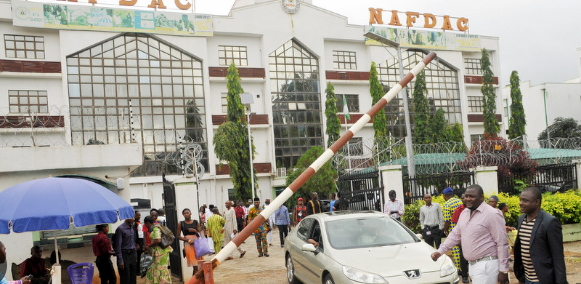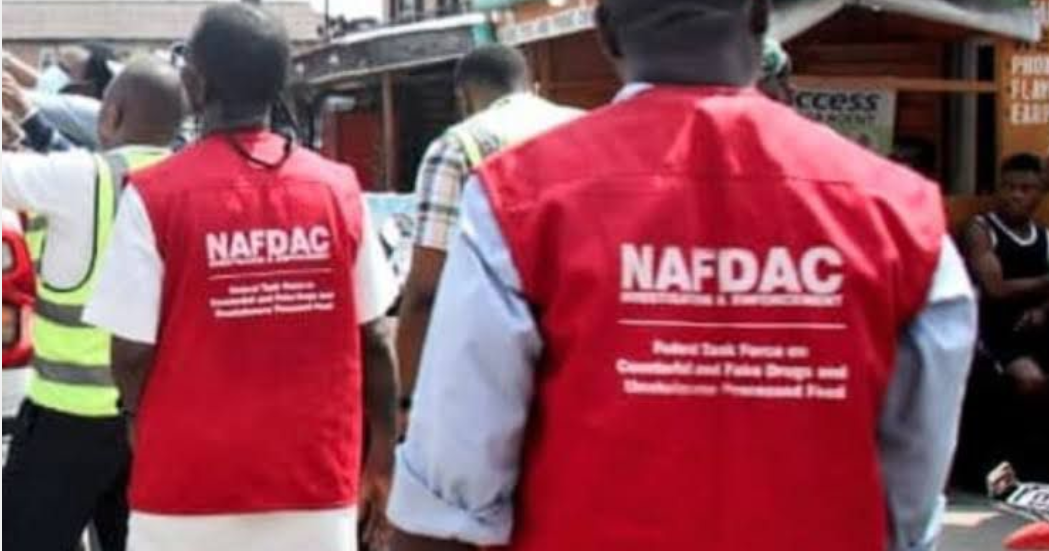By Jemimah Wellington, JKNewsMedia Reporter
THE ONGOING strike by the Medical and Health Workers Union of Nigeria (MHWUN) at NAFDAC has entered its third week, and it is disrupting key operations and putting public health and safety at serious risk.
Director-General Prof. Mojisola Adeyeye has made a strong appeal to the striking workers, urging them to prioritize the nation’s interests.
She praised the dedication and hard work of NAFDAC staff, calling on them to resume their vital role in safeguarding public health.
“We cannot afford to fail at this critical moment,” she stressed, expressing hope that the union will respond positively to management’s efforts to resolve their grievances.

Striking Workers Adamant
Since the strike began on October 7, 2024, NAFDAC’s essential regulatory functions have been severely hampered, affecting the agency’s ability to safeguard the health and well-being of millions of Nigerians.
The workers’ grievances that led to the strike include a wide range of issues.
Chief among them is the call for an expansion of vacancies to promote all candidates who scored 60 marks and above in the NAFDAC 2024 promotion exercise.
While promotion in the public service is typically based on merit and the availability of vacancies, the union insists that NAFDAC management must facilitate this process.
The agency, however, has clarified that the responsibility for creating these vacancies lies with the Office of the Head of Civil Service of the Federation.
To address the matter, NAFDAC has written to Prof. Muhammad Ali Pate, the Coordinating Minister of Health and Social Welfare (CMHSW).
The agency said it is awaiting approval from the Head of Service, Mrs Didi Esther Walson-Jack.
Despite these steps, the union remains dissatisfied.

Workers’ Salient Concerns
Another major concern is the full compliance with the 2022 agreement signed with NAFDAC’s management.
The union demands the gazetting of Hazard, Productivity, and Regulatory Allowances, which have yet to be fully implemented.
NAFDAC management, led by Director-General Prof. Mojisola Adeyeye, has made efforts to resolve this issue.
The Secretary to the Government of the Federation (SGF), George Akume, has already written to the Minister of Finance and the Coordinating Minister of Economy, Wale Edun, recommending the approval of these allowances, using NAFDAC’s user fees as a funding source.
However, the union feels progress has been slow and continues to demand quicker action.
Other Union Requests
In addition to these key concerns, the union has raised several other issues.
One is the status of the proposed training school in Kaduna.
While the union had originally been informed that the project was not feasible due to the political and security situation in Kaduna, NAFDAC management launched an online training school in October 2023.
The union, however, has been pushing for a physical training facility, and the management has promised to revisit this request with the agency’s council.
Other grievances include the payment of repatriation, burial expenses, and life insurance benefits, all of which the union claims have not been adequately addressed.
NAFDAC management counters that these benefits are paid as needed and assures staff that all outstanding claims will be resolved once the necessary names are submitted.
Furthermore, the union has expressed frustration over the perception that the disengagement allowance has been stopped, although NAFDAC management insists that this is a misconception, and any delays in payment will be promptly handled.
Casualization of drivers is another issue that has escalated tensions. MHWUN is demanding the permanent employment of casual drivers, and while NAFDAC has made some progress by offering permanent positions to a few drivers, the union argues that more needs to be done.
Management assures that recruitment is ongoing and that all casual drivers will be absorbed once the necessary approvals are granted.
The union also calls for the expansion of the agency’s organogram to create more vacancies.
Since 2016, under the leadership of Prof. Adeyeye, the number of directorates within NAFDAC has more than doubled, growing from 13 to 28.
Recently, four new directorates were created as part of this expansion, but the union insists that more positions are needed to accommodate the growing workforce.
Two additional points of contention are the review of job-specific allowances and laboratory allowances. The union believes that these allowances have not kept pace with inflation and the increased workload borne by NAFDAC staff.
NAFDAC management agrees that a review is overdue and has already engaged the National Salaries, Income and Wages Commission on the matter.
However, management also notes that the agency’s finances have been severely impacted by the government’s decision to deduct 50% of NAFDAC’s Internally Generated Revenue (IGR) at the start of 2024.
This has limited the agency’s ability to make significant financial adjustments. Nevertheless, management is open to reviewing the allowances and is committed to ensuring fairness, particularly for laboratory staff who have demonstrated exceptional dedication.
Finally, the issue of staff transfers has also surfaced as a sticking point.
NAFDAC is revealed to have a policy of rotating staff who have spent long periods in one location, but the union argues that the process should be more transparent and consistent.
Management has confirmed that transfers are ongoing, with several zones—such as the South-West, South-East, North-Central, and North-East—seeing recent deployments.
However, the laboratory staff, who work in specialized areas, require more measured and strategic transfers to avoid disruptions to their work.
Despite multiple meetings between NAFDAC management and the union leaders—held on October 5, 11, 18, and 19—the strike continues.
The impasse has raised concerns not just about the internal workings of the agency but also about the broader implications for the public.
NAFDAC’s role in regulating food, drugs, and other critical products means that the ongoing strike could expose Nigerians to potential health risks.
Delayed inspections halted regulatory processes, and the inability to control the importation of hazardous materials are just a few of the pressing concerns.
The financial cost of the strike is also mounting.
With the agency’s revenue streams disrupted, NAFDAC may struggle to meet its financial obligations, including the payment of productivity allowances and other staff benefits.
This situation, if prolonged, could lead to further discontent among employees and potentially spark a wider industrial action across other sectors of the agency.
While another union, the Senior Staff Association of Statutory Corporations and Government-Owned Companies (SSASCGOC), has suspended its own strike in a show of maturity, MHWUN remains steadfast in its demands.





